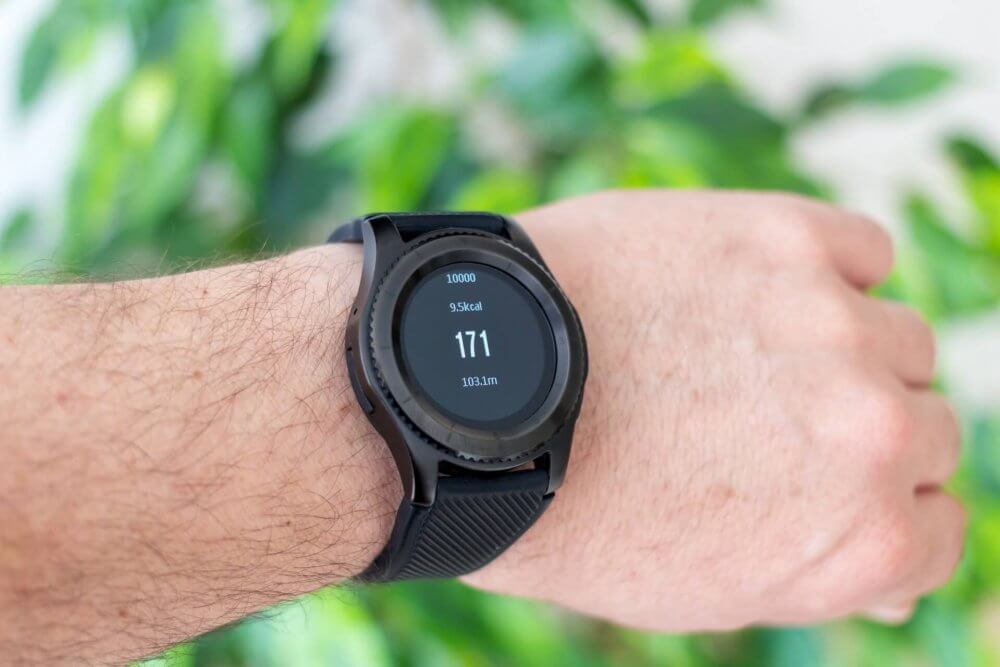What Is An Average Jogger’s Speed?

When people first take up jogging, they often find themselves feeling concerned that what they are doing does not quite measure up to others. However, if you really dig into the act of jogging and what it entails, you certainly realize that it is not only individual, but you are not supposed to be worried about speed!
According to Webster, to jog is to “run at a steady, gentle pace.” Did you notice it does not say anything about speed except to say it is gentle? So the first thing to get out of your head is that there should be an expectation of some sort of pace or speed. You should be moving gently based on the very definition of the word!
Difference Between Jogging and Running
There are many runners who say the cut off line for saying you are jogging rather than running is around the 10-minute mile mark. Why an arbitrary number? I think it is because it feels neater for people today “if you move this fast” or “if you can do x,y,z” you fit this group of people.
Personally, I don’t think it is that cut and dry. Instead of thinking about a particular average jogging speed, let’s frame it in a different way. When I am comparing jogging and running I focus on a few main criteria: intensity, perceived effort, heart rate, mental mindset, and stride.
1. Intensity
Most people agree that if you are moving along quickly you are running. That is where intensity comes in. It is very likely that you could jog for hours at a comfortable pace where you can carry on an entire conversation with a friend. If you are at a higher intensity, you perhaps can’t do that.
Now here is where things get complicated. My jog pace, let’s say an 11 or 12-minute mile, could be an “I’m working super hard” pace for someone else. See why I say to disregard pace?
2. Perceived Effort
Sometimes your workout will have you target a certain perceived effort. Your sprints would be a 9 out of 10 on a perceived effort scale. 5K or 10K effort might be a 7 or 8.
If your goal is to gently jog for 30 minutes, your perceived effort should be very low, perhaps a 4 or a 5. You feel like you could move forever!
3. Heart Rate
Although I personally use heart rate to determine intensity, not everyone does. And even that is not a uniform measure from one runner, jogger or athlete to the next. I have friends whose heart rate just seems to run high. They frequently hit an HR in the 180s on a Saturday morning run.

So while for me I can just work on keeping my heart rate low as a measure of intensity, if you are someone whose heart rate elevates quickly with any physical exercise, this might not be the most appropriate measure for you. If you are familiar with zone training, you would want to be in a lower zone for jogging than running.
4. Mindset
For me, if I am going out for a nice, easy jog, my mindset is one of relaxation. I might put on some gentle music or maybe just listen to the sounds of nature. What I don’t do is pick my most intense playlist and hit the ground fast and hard.
When you set out to run or jog at a nice easy pace, your mindset should be of recovery or just to escape the world. That would likely be more of a jog.
However, if you are like me, you also may find yourself hitting the track after a stressful day, ready to use that as a tool to unwind. A very different type of stress relief and unwinding finds me hammering out quarter-mile repeats on the track. The music will be loud, my heart rate high, and I will find myself gasping for breath. This is certainly running, no debate about it.
Average Runner Speed
According to Healthline, the average runner completes a 5K anywhere from 9 to 12 minutes per mile. That is quite a gap! And many of these runners will be quite insulted if you throw the term jogger their way. Why? For some reason, runners see that term as an insult. Why? Because people take joggers less seriously.
Hear me out. If you are out there pounding the pavement on a regular basis, doing all of the epic things, you likely consider yourself a runner. Running has a kind of badass connotation to it. You envision people dressed a certain way, toeing the line for a race, training on an almost daily basis. Runners dress in flashy jackets and technical apparel.

On the other hand, close your eyes and conjure up an image of a jogger. Likely you just imagined someone wearing old-school gray sweats from head to toe. For some, your image of a runner brings up someone tall and lean. What about your jogger? Are they looking frumpy?
I am not implying that either of these images is accurate, or that one is more accurate than the other. But I do think we can agree that we all have a preconceived notion of what a jogger looks like and it may not be complimentary. It also may not be how you want to envision yourself.
Jogging is Not a Dirty Word!
Here’s the thing, folks. And hear me loud and clear. If you want to call yourself a runner, you should! If you prefer the term jogger, that is perfectly okay too! Do not let someone else preconceived notions or expectations define you. No matter how fast or slow you run, you can be called a jogger or runner. It is up to you.
However, you also need to know that “jogging” is not a dirty word. Don’t let it bother you. When someone asks you if “you are still jogging,” try not to take it so personally. They probably don’t know that you may be insulted.
If it is that important to you, just switch the dialogue. You might answer by saying, “Yes! I still run 4 or 5 days each week.” See what we did there? You created your own dialogue without getting all offended. It is that simple!
Latest Articles
 Is Running on a Treadmill Easier Than Running Outside?Runners have their own preferences, whether it is treadmill running, running outside on the road, or exploring trails. So...
Is Running on a Treadmill Easier Than Running Outside?Runners have their own preferences, whether it is treadmill running, running outside on the road, or exploring trails. So... Is It OK to Use Trail Running Shoes on the Road?While trail running shoes can be used on roads, especially in situations where a runner encounters mixed terrains or pref...
Is It OK to Use Trail Running Shoes on the Road?While trail running shoes can be used on roads, especially in situations where a runner encounters mixed terrains or pref... How to Fix Sore Quads After Running?Rest, ice, gentle stretching, and over-the-counter pain relievers can help soothe sore quads after running. Also, ensure ...
How to Fix Sore Quads After Running?Rest, ice, gentle stretching, and over-the-counter pain relievers can help soothe sore quads after running. Also, ensure ... 10 Fruits With The Most Electrolytes to Replace Sports DrinksThese fruits are high in electrolytes such as potassium, magnesium, and calcium, essential for hydration, muscle function...
10 Fruits With The Most Electrolytes to Replace Sports DrinksThese fruits are high in electrolytes such as potassium, magnesium, and calcium, essential for hydration, muscle function...

